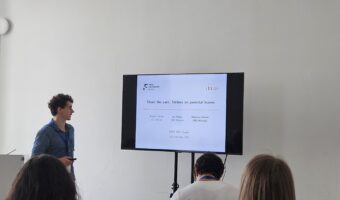The project aims to analyse the relationship between social gender norms and decisions about labour market participation and childcare.
- We will explore when social norms can be considered an essential factor in this regard and for whom. W will pay special attention to the household level to see whether male or female viewpoints on gender roles play a more critical role in female employment.
- We will also take a closer look at parental leaves and investigate how they affect the childcare decisions of spouses and the labour market prospects of men and women who take them.
- Finally, we will study when men and women conform to self-declared social norms and when they act at odds with them.
We will use a large dataset and various econometric techniques, including a quasi-experiment and an experiment, to provide evidence on this phenomenon in Poland and Germany. Both countries share a similar experience with the socialist ideology, which encouraged women to participate in the labour market. East Germany and Poland’s female labour force participation rate increased. Yet Poland, similarly to several Central and East European Countries, exhibit a backlash to more traditional attitudes, while in Germany, traditional attitudes have liberalised. In our research, we will pay particular attention to the international comparison to see whether inconsistencies between declared gender attitudes are stronger in Central and Eastern European than in Western European countries.
Social norms encompass a range of behavioural prescriptions which suggest what is appropriate for men and women to do. They are likely to play an essential role in economic decision-making. Traditionally, men were seen as those who should work outside the home and provide financially for the family, while women were seen as caretakers who stayed t home with children. Despite the evolution of attitudes toward female employment, the traditional divisions seem profoundly rooted and persistent. Researchers are paying more and more attention to analysing how social norms affect the labour market decisions of individuals. It is a relatively new strand in the economic literature. Therefore many questions remain unanswered. And now, within this project, we are going to find the answers to some of them.
The project partner is the School of Business & Economics at Freie Universität Berlin
* * *

The project is funded by National Science Centre, Poland, under the BEETHOVEN CLASSIC 4 (2020/39/G/HS4/03138).










